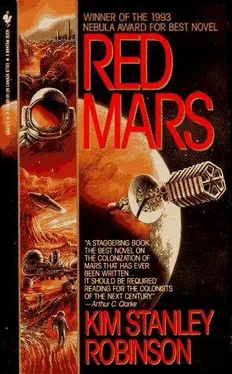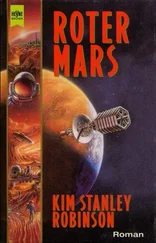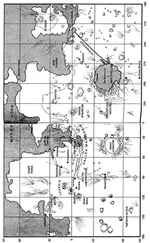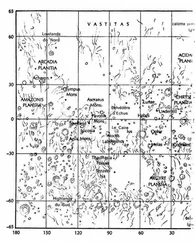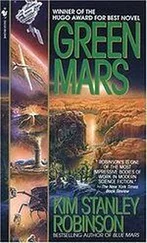“That’s life,” Arkady said cheerfully. “On Mars or not, life goes on.”
Frank’s jaw was clenched. “I came here to get away from this kind of thing!”
Arkady shook his head. “You certainly did not! This is your life, Frank. What would you do without it?”
• • •
One night shortly before the descent, they gathered and had a formal dinner for the entire hundred. Most of the food was farm-grown: pasta, salad, and bread, with red wine from storage, saved for a special occasion.
Over a dessert of strawberries, Arkady floated up to propose a toast. “To the new world we now create!”
A chorus of groans and cheers; by now they all knew what he meant. Phyllis threw down a strawberry and said, “Look, Arkady, this settlement is a scientific station. Your ideas are irrelevant to it. Maybe in fifty or a hundred years. But for now, it’s going to be like the stations in Antarctica.”
“That’s true,” Arkady said. “But in fact Antarctic stations are very political. Most of them were built so that the countries that built them would have a say in the revision of the Antarctic treaty. And now the stations are governed by laws set by that treaty, which was made by a very political process! So you see, you cannot just stick your head in the sand crying ‘I am a scientist, I am a scientist!’
” He put a hand to his forehead, in the universal gesture mocking the prima donna. “No. When you say that, you are only saying, ‘I do not wish to think about complex systems!’ Which is not really worthy of true scientists, is it?”
“The Antarctic is governed by a treaty because no one lives there except in scientific stations,” Maya said irritably. To have their final dinner, their last moment of freedom, disrupted like this!
“True,” Arkady said. “But think of the result. In Antarctica, no one can own land. No one country or organization can exploit the continent’s natural resources without the consent of every other country. No one can claim to own those resources, or take them and sell them to other people, so that some profit from them while others pay for their use. Don’t you see how radically different that is from the way the rest of the world is run? And this is the last area on Earth to be organized, to be given a set of laws. It represents what all governments working together feel instinctively is fair, revealed on land free from claims of sovereignty, or really from any history at all. It is, to say it plainly, Earth’s best attempt to create just property laws! Do you see? This is the way the entire world should be run, if only we could free it from the straitjacket of history!”
Sax Russell, blinking mildly, said, “But Arkady, since Mars is going to be ruled by a treaty based on the old Antarctic one, what are you objecting to? The Outer Space Treaty states that no country can claim land on Mars, no military activities are allowed, and all bases are open to inspection by any country. Also no Martian resources can become the property of a single nation. The U.N. is supposed to establish an international regime to govern any mining or other exploitation. If anything is ever done along that line, which I doubt will happen, then it is to be shared among all the nations of the world.” He turned a palm upward. “Isn’t that what you’re agitating for, already achieved?”
“It’s a start,” Arkady said. “But there are aspects of that treaty you haven’t mentioned. Bases built on Mars will belong to the countries that build them, for instance. We will be building American and Russian bases, according to this provision of the law. And that puts us right back into the nightmare of Terran law and Terran history. American and Russian businesses will have the right to exploit Mars, as long as the profits are somehow shared by all the nations signing the treaty. This may only involve some sort of percentage paid to the U.N., in effect no more than a bribe. I don’t believe we should acknowledge these provisions for even a moment!”
Silence followed this remark.
Ann Clayborne said, “This treaty also says we have to take measures to prevent the disruption of planetary environments, I think is how they put it. It’s in Article Seven. That seems to me to expressly forbid the terraforming that so many of you are talking about.”
“I would say that we should ignore that provision as well,” Arkady said quickly. “Our own well-being depends on ignoring it.”
This view was more popular than his others, and several people said so.
“But if you’re willing to disregard one article,” Arkady pointed out, “you should be willing to disregard the rest. Right?”
There was an uncomfortable pause.
“All these changes will happen inevitably,” Sax Russell said with a shrug. “Being on Mars will change us in an evolutionary way.”
Arkady shook his head vehemently, causing him to spin a little in the air over the table. “No, no, no, no! History is not evolution! It is a false analogy! Evolution is a matter of environment and chance, acting over millions of years. But history is a matter of environment and choice, acting within lifetimes, and sometimes within years, or months, or days! History is Lamarckian! So that if we choose to establish certain institutions on Mars, there they will be! And if we choose others, there they will be!” A wave of his hand encompassed them all, the people seated at the tables, the people floating among the vines: “I say we should make those choices ourselves, rather than having them made for us by people back on Earth. By people long dead, really.”
Phyllis said sharply, “You want some kind of communal utopia, and it’s not possible. I should think Russian history would have taught you something about that.”
“It has,” Arkady said. “Now I put to use what it has taught me.”
“Advocating an ill-defined revolution? Fomenting a crisis situation? Getting everyone upset and at odds with each other?”
A lot of people nodded at this, but Arkady waved them away. “I decline to accept blame for everyone’s problems at this point in the trip. I have only said what I think, which is my right. If I make some of you uncomfortable, that is your problem. It is because you don’t like the implications of what I say, but can’t find grounds to deny them.”
“Some of us can’t understand what you say,” Mary exclaimed.
“I say only this!” Arkady said, staring at her bug-eyed. “We have come to Mars for good. We are going to make not only our homes and our food, but also our water and the very air we breathe— all on a planet that has none of these things. We can do this because we have technology to manipulate matter right down to the molecular level. This is an extraordinary ability, think of it! And yet some of us here can accept transforming the entire physical reality of this planet, without doing a single thing to change our selves, or the way we live. To be twenty-first-century scientists on Mars, in fact, but at the same time living within nineteenth-century social systems, based on seventeenth-century ideologies. It’s absurd, it’s crazy, it’s— it’s—” he seized his head in his hands, tugged at his hair, roared “It’s unscientific ! And so I say that among all the many things we transform on Mars, ourselves and our social reality should be among them. We must terraform not only Mars, but ourselves.”
• • •
No one ventured a rebuttal to that; Arkady at full throttle was pretty much unopposable, and a lot of them were genuinely provoked by what he had said, and needed time to think. Others were simply disgruntled, but unwilling to cause too much of a fuss at this particular dinner, which was supposed to be a celebration. It was easier to roll one’s eyes, and drink to the toast. “To Mars! To Mars!” But as they floated around after finishing dessert, Phyllis was disdainful. “First we have to survive,” she said. “With dissension like this, how good will our chances be?”
Читать дальше
Конец ознакомительного отрывка
Купить книгу
